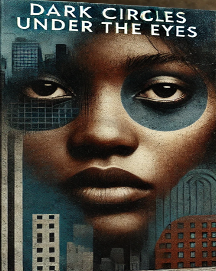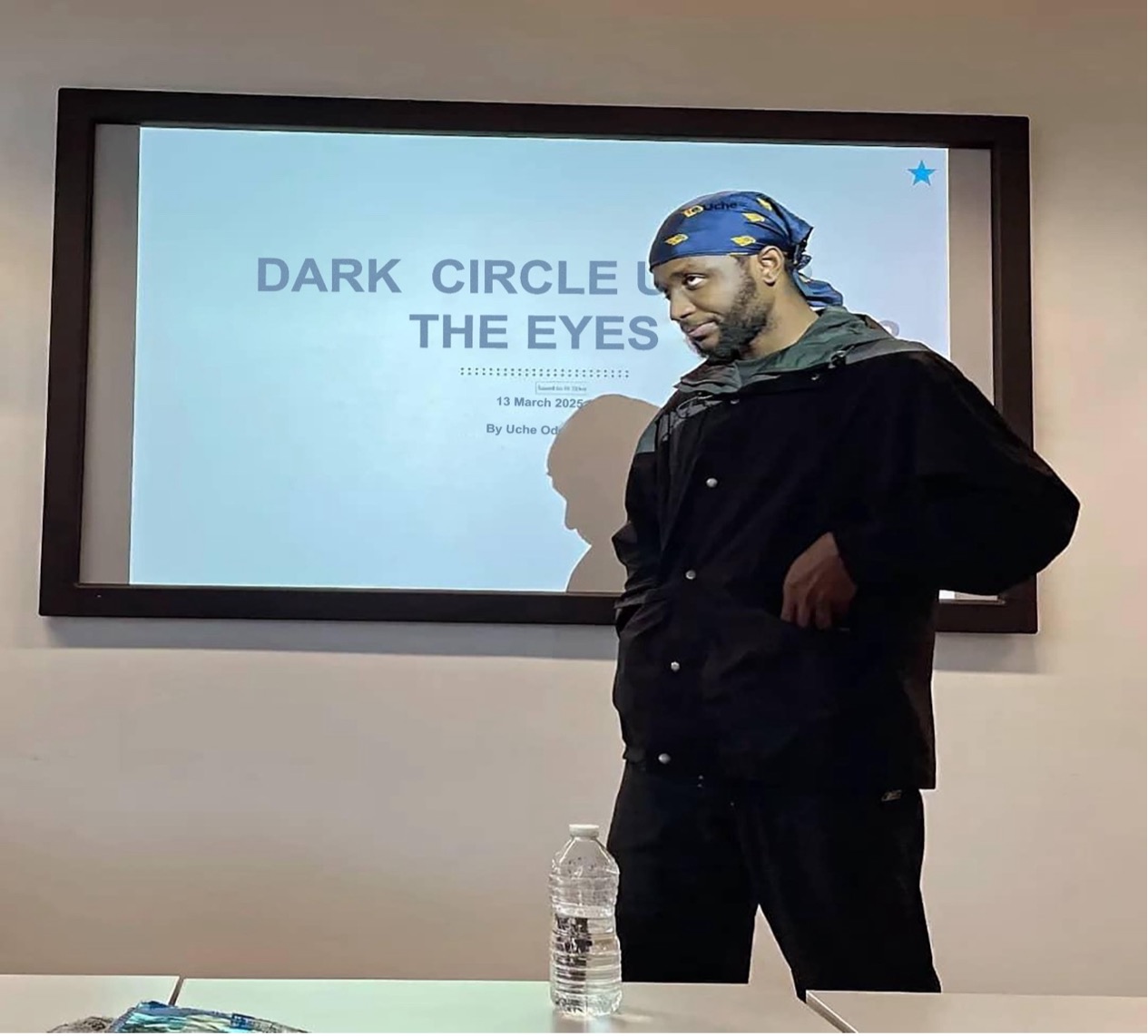Uche Odogwu
When I first saw my picture in the Bournemouth Journal as the next Featured Writer, it was a shivering, goosebumps moment that left a long cheerfulness in my spirit for weeks on end. It wasn’t just about being featured—it was the thought that I was going to be listened to and heard by writers from different walks of life with unique experiences. It felt like an opportunity to share my voice.
During the session, I read passages from my upcoming novel, Dark Circles Under the Eyes. The novel is a psychological drama that delves into the mental health struggles, legal inequalities, and societal pressures faced by immigrants—especially Black immigrants—trying to navigate life in a place far from home. I chose to share this work because it is my latest project, currently being prepared for publication, and it speaks directly to the challenges our contemporary society faces.
What surprised me most was the constructive and fantastic feedback I received from fellow writers after I read my piece. They identified my strengths and weaknesses, offering thoughtful insights that gave me the headlights to continue my path. From the discussions and reactions, I could tell they wanted to read the entire piece as a published novel. Their engagement affirmed that the themes I was exploring resonated deeply.
Later in the session, I shared a poem from my novel titled “No Road Leads Home”:
No Road Leads Home
I left my farmland,
A place where the sun scorched dreams,
Where every breath was a battle,
And hope faded like the last light of dusk.
I chased the dreams of greener farmlands,
Carrying my family’s hopes in trembling hands.
But now, the earth beneath me splits,
And in the cracks, my spirit sits.
Gboko’s shadow follows me still,
A haunting whisper, a distant chill.
Did I run for freedom or flee the past?
A question with no answer, yet vast.
But here,
The walls speak a different language,
But the sorrow is the same.
In this greener farmland,
I’ve found a new prison,
Not made of hunger or poverty,
But of iron bars and cold, concrete floors.
They say this journey leads to truth,
But what if it steals my youth?
At my homestead, I fought to survive,
Now, I fight to remember who I was.
I traded one chain for another,
One hardship for a prison’s kiss.
Twenty-four years, they said,
A sentence as long as the hunger that drove me here.
The years stretch out before me,
Like an endless road I did not choose.
Twenty-four years stretch like the sky,
A lifetime before my soul can fly.
But here I’ll sit, and here I’ll wait,
A prisoner of time, locked in fate.
I also read a reflective passage, recounting the protagonist’s thoughts about the journey that led her from Gboko, Nigeria, to a courtroom abroad:
The van seemed to be moving faster. There was no porthole noise like the numerous ones we have in Nigerian roads; it was a smooth journey. I bowed my head in reflection and began reminiscing about the past—about memories and events that happened years ago, events that led me here, and then I realized that my journey didn’t begin here in this country; it started back in Gboko, a town in my home country, Nigeria, where I lost everything, even my sense of home. That was the moment my life started to crack, like a newly moulded clay pot drying in the sun. Perhaps the Gboko nightmare started it all. The Gboko ordeal triggered something deep within me—a belief in change, in escape, and a belief that I could no longer believe in the place where I was born. I began secretly nurturing the thought of leaving the country by any means necessary. Almost every young person in my country shared this belief with a strong resolve—to leave the country for a better life. That’s how horrid things had become; we cried the same tears on different cheeks. The frustration had grown unprecedented. Everyone wanted a taste of Obodo Oyibo (a better life abroad, often in Western countries). Almost every youth in Nigeria carried dark circles under their eyes, but those puffy circles were not a sign of weakness. They were a sign that revealed the harsh realities of a wicked and reckless system.
After my reading, one writer mentioned how much she resonated with the instability of African society and the imperfections of the British system—and how she appreciated the way I juxtaposed both worlds in a compelling narrative.
Beyond presenting my work, I felt I had contributed to what makes Heard Word so essential: a space that brings together writers from different backgrounds and races to share, reflect, and enrich the literary process and industry that it feeds. It was more than a reading—it was a community-driven experience, one that promotes diverse voices and fosters creative dialogue across borders.

As for Dark Circles Under the Eyes, the next step is publication. Soon, it will be available to the general public. But beyond my personal journey, what the Heard Word session reinforced for me is that the literary industry is alive and thriving. Platforms like Heard Word ensure that the stories of the marginalised and the unheard continue to find light, strengthening writers like myself and the entire UK arts sector.
